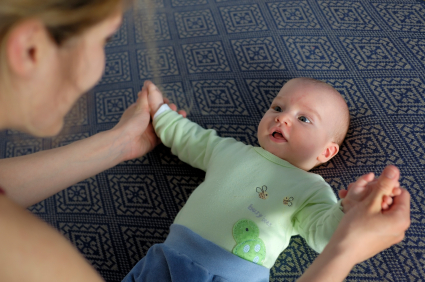Trying to decide which treatments would provide the best outcomes for your child can be a difficult and overwhelming process. You want your child to receive the most effective treatment option but what determines whether or not a treatment is effective? If it worked for other children with similar problems, will it work for your child? Is there research or evidence to support the effectiveness of this treatment?
All of these questions are important and relevant questions to ask yourself when it comes to finding the right treatment for your child. Although it is strongly recommended to address these questions and concerns with your child’s clinician, one way to learn more about effective treatments is by familiarizing yourself with Evidence-Based Practices (EBP).
What are Evidence-Based Practices?
Evidence-Based Practices (EBP) are well-established treatments because they are strongly supported by evidence from research studies that are designed to evaluate their effectiveness. Specifically, when a treatment is identified as an EBP it means that the treatment has been studied in a community or academic setting and has been proven to show positive treatment outcomes in multiple studies conducted by multiple research teams. Additionally, EBPs are client-centered because they are treatments that are designed to integrate research evidence, clinical expertise, and client/patient/family values, preferences, culture, and environment.
What Are Current Evidence-Based Practices?
The table below provides a brief list of EBPs for specific child and adolescent disorders:
Online Resources on Evidence Based Practices
The Society of Clinical Child and Adolescent Psychology (Division 53 of the American Psychological Association) offers clinicians and parents access to a variety of online video resources on EBPs, which also includes a more recently developed YouTube channel titled: Effective Child Therapy Resource Library. Along with providing par
ents and clinicians with a variety of free videos, these online resources cover a wide range of topics pertaining to EBPs for children and adolescents including:
- Abuse
- Adherence to Treatment
- Aggression/Conduct Problems
- Anxiety Disorders
- ADHD
- Autism Spectrum Disorder
- Bipolar Disorder
- Depression
- Divorce
- Learning
- Substance Use Problems
- Suicide Risk
These video resources provide parents with interviews conducted with experts in child and adolescent psychology. Experts provide brief discussions on specific issues such as, treating specific disorders, identifying certain behaviors (to determine whether or not your child might have a problem), as well as evidence-based treatment options. The videos also provide additional links to related videos and PDFs that offer parents more information regarding the specific topic.
If you have questions or concerns about your child, we would love to help! Give us a call at (847) 595-4808 and speak to one of our Family Child Advocates today!












